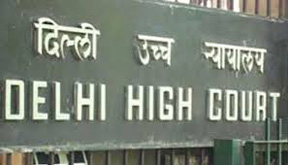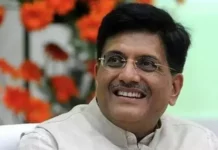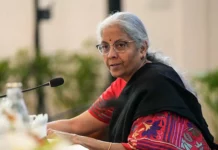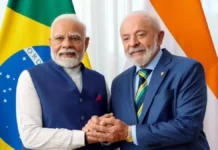 NEW DELHI: The Delhi High Court today declined an interim prayer of a law student seeking lifting of ban on telecasting the controversial BBC documentary on the December 16 gang rape case convict’s interview.
NEW DELHI: The Delhi High Court today declined an interim prayer of a law student seeking lifting of ban on telecasting the controversial BBC documentary on the December 16 gang rape case convict’s interview.
A bench of Chief Justice G Rohini and Justice Rajiv Sahai Endlaw also observed that the Information and Broadcasting Ministry has opposed airing of the documentary as it can “encourage and incite violence against women and thus compromise women safety”.
“It is not a matter for interim relief. So we cannot grant the same at this stage. We have called for the original record, which has been produced before this court by the concerned ministry. We will go through it and then take up the matter,” the bench said and listed the matter for further hearing on May 27.
The court declined interim relief on the request made by three law students to lift the ban on airing of the documentary on the ground that it is “a look at the mindset of one of the convicted rapists”.
It was hearing two PILs filed by the students – Vibhor Anand, Arun Menon and Kritika Padode – seeking lifting of the ban on the documentary’s broadcast.
Opposing the request, government’s standing counsel Monika Arora said the petitions should be dismissed by imposing cost on the petitioners.
“It is stated that it had come to the notice of the Ministry that a number of private channels had been showing certain excerpts of a program titled ‘India’s daughter’ which was proposed to be telecast by the BBC and a private news channel.
“The excerpts contained an interview with one of the convicted rapists of the Delhi gang rape victim of December 2012… This program also provided a platform for the convict to use the media to further his own case, especially when his appeal the conviction is sub-judice.
“The telecast of these excerpts appeared to encourage and incite violence against women and thus compromising women’s public safety. They also provide encouragement to anti-social elements who indulge in violent acts compromising law and order,” Arora said while referring to an affidavit filed by the Ministry in the court.
One of the petitions has also sought a direction to the Bar Council of India to expedite action against the two lawyers — A P Singh and M L Sharma — who had allegedly made anti-women remarks in the documentary.
It claimed that the parents of the gang rape victim have not objected to the telecast of the documentary.
The victim, a physiotherapy student, was gang raped and assaulted with an iron rod when she boarded a private bus after watching movie with a male friend on December 16, 2012.
Her male companion was badly beaten up and could not come to her rescue when she was assaulted in the bus. The two were later dumped on the roadside naked and bleeding.
The woman was airlifted to a Singapore hospital for treatment where she died 13 days after the assault.
Mukesh Singh, along with three others, was convicted and sentenced to death in September 2013 for the gang rape and murder of the 23-year-old victim.
The PILs were filed after a trial court had on March 4 banned until further orders the broadcast of the interview of Mukesh, allegedly taken inside Tihar jail here in July 2013.
In the affidavit, the ministry also said it has its own regulations on telecast of advertisements or progams all over the country and could take action against erring channels by issuing advisories, warnings, off-air penalty and order for apology scroll, if a program violates the law.
The court earlier said it would first peruse the records based on which the Centre had issued an advisory barring the media from broadcasting the documentary and then decide whether to entertain the plea for lifting the ban on it.
It had asked the I&B ministry to place before it the records based on which the advisory was issued.
On March 12, another bench of the court, while refusing to lift the ban, had observed that media trials tend to influence judges by subconsciously creating a pressure.
It had also said although it was prima facie not opposed to airing of the documentary, it should be released after the apex court decided the appeals of the convicts in the matter, observing that the documentary could “interfere with the justice system”.–PTI





